 |
 |
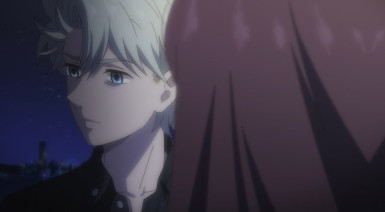 |
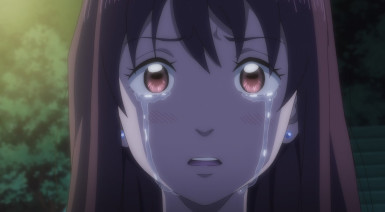 |
 |
 |
 |
 |
 |
 |
 |
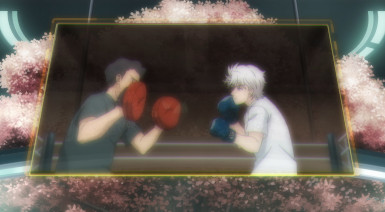 |
 |
 |
 |
 |
 |
 |
 |
 |
 |
 |
 |
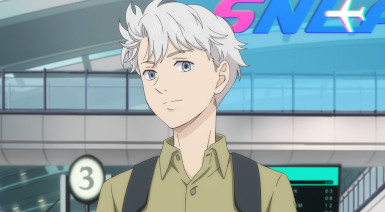 |
 |
 |
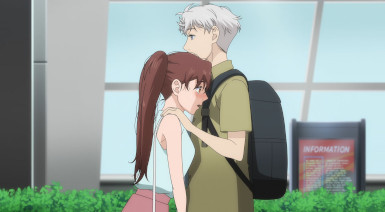 |
 |
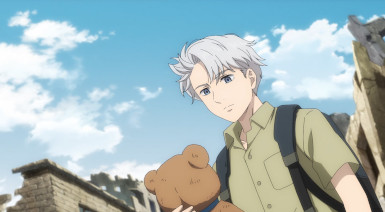 |
 |
「旅立ち」 (Tabidachi)
“Departure”
AI no Idenshi sticking the landing is not a surprise to me. The standard of writing with this series has been very, very high right from the beginning. It is, to employ of my oft-used (co-opted from Midousuji Akira) expressions, not a mass-produced model. This is a very “un-anime” anime, and while the guardrails are much further apart with manga, I suspect it’s probably pretty unconventional even there. When the reckoning up of 2023 in anime comes around, this series is going to demand serious consideration from me.
Last week saw the series take its most conventional turn, one I fully expected for reasons I elucidated in that post. But even there it surprised me, for it spun that turn off in an unexpected direction in the finale. What AI no Idenshi managed to do here (and it’s so rare in anime), is take the almost inevitable pivot to plot in episodic series and successfully intertwine the plot with the themes the show has been pursuing all along. What we saw with Sudo-sensei was indeed inevitable and the logical build-up of eleven episodes of development. But the denouement (cliffhanger though it was) is consistent with the larger identity of the series.
Hikaru calling Risa an “outsider” was obviously incredibly hurtful (for the same reasons Killua was so stricken by Gon saying effectively the same thing in Episode 116). The only real question is whether he did it to intentionally push her away, making their impending separation easier (if so, epic fail). Sudo does, as his report card said, have trouble expressing his feelings – the quintessential Japanese male. Risa has a lot of scars – not just from her father’s abandonment, but her mother “having her changed” after it happened. Sudo’s acceptance means so much to her (and never mind that she’s in love with him).
Michi has indeed given Hikaru the path to his mother – she’s in a place called Robisia, entirely fictional but obviously some sort of war-torn third world country. Michi also offers Sudo firearms and self-defense training (he’s a natural at both, though one assumes there’s not much he’s not good at), plus whatever logistical support he needs. As to the clinic, Sudo’s answer is to turn it over to Seto-san, he of the mind-wiping without patient permission. I struggle with this, to be honest, despite the credible arguments Sudo makes in defense of it. But given what a singular talent Sudo is, I suppose unless he decided to close up shop altogether the options were extremely limited.
This episode spends a lot of time pondering the basic question of whether Sudo is right or wrong to be pursuing this path. Seto and Risa certainly disapprove, and so does his mom when he visits her in the slammer (not that he tells her, but a mother knows something is up). But I kind of disagree, actually. Yes, it’s wrong to be obsessed with the past. But if we accept the premise that humanoids are sentient, feeling beings entitled to the same legal and moral respect humans are, I don’t see how he can abandon this version of his mother. I actually think he’s doing the right thing but fittingly. as it’s how AI no Idenshi approached all the difficult binary dilemmas, the series doesn’t tell us the answer – it just forces us to ponder the question.
In the end, Sudo seems to find a middle ground – he’s a product of the connections he’s made in his life (as are all of us). On that last call to Risa (thank goodness she answered) – I’m not sure if he just wanted to acknowledge his doubts or whether he’d actually talked himself out of going. Ironically she ends up supporting his original decision – realizing, I think correctly, that to do otherwise would leave him even more a prisoner of his past than he already is. That final meeting at the airport was a beautiful way to bring the series to a close, and again, so very atypical for anime. That kind of emotional openness is just not something we see often, and it was completely earned by the developing building up to it.
Obviously this is not a resolution in terms of the untied plot threads. What Michi really wants, what happens to Sudo once he goes to Robisia, the fate of the clinic in Seto’s hands, all are left unanswered. In that sense this is a classic “read the manga” ending (if you can read Japanese), and it should be unsatisfying for that reason. But as with Undead Girl Murder Farce I’m feeling quite okay with it, because it’s such a faithful representation of the series as a whole. I never expected AI no Idenshi to be popular or get a full adaptation, so an ending which accomplishes that is as good as we could realistically have hoped for.
I think this series works both as an exploration of the rise of A.I. and its impact on society, and as a musing on human nature using that as a lens. In that way it follows in the footsteps of countless great works of science fiction which has pulled off that very same sort of double. It’s why I love the genre so much, and why I miss the days when intellectually ambitious sci-fi was one of the staples of anime. We need more series like AI no Idenshi – smart, ambitious works which both respect and challenge the audience. It’s one of the most unsung gems of the year and fully worthy of the sleeper label it carried into the season.
